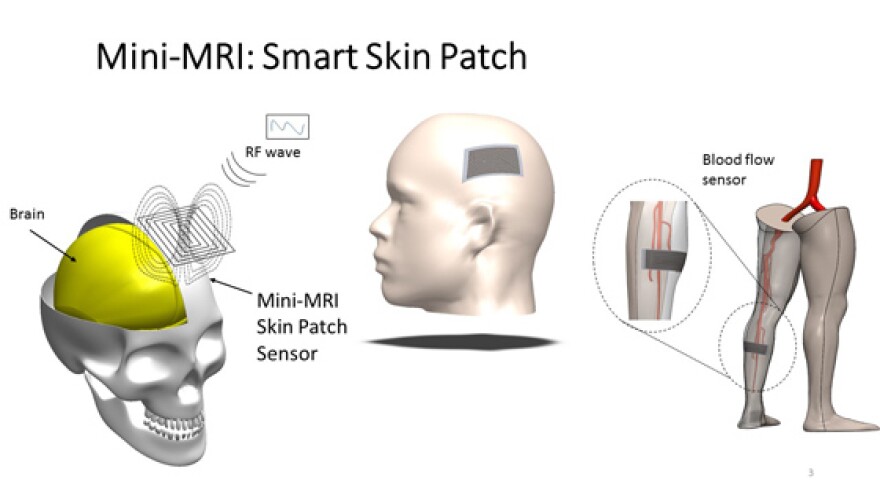Researchers at Wichita State University have received a grant from NASA to develop a biomedical sensor that attaches to the body.
The wearable device is called a smart skin biomedical sensor. It looks like a rectangular copper sticker with geometric patterns.
Based on their early work , a group of student and faculty researchers at WSU received a $1.1 million grant from NASA to continue developing the sensor. It measures things like blood flow, blood gas levels and muscle degeneration—all without batteries or electrical components.

Head researcher Kim Cluff presented the sensor at a Health Care Innovation Forum in Wichita earlier this year.
“Most of you are probably familiar with MRI. It uses a combination of magnetic fields and radio waves to create incredible images of the human body," he said. "What if we could compress these MRI systems into something as small as a Band-aide or a patch?”
NASA could one day use the sensor for their own research. Cluff says he thinks doctors could also use it as a diagnostic tool for patients.
--
Follow Nadya Faulx on Twitter @NadyaFaulx.
To contact KMUW News or to send in a news tip, reach us at news@kmuw.org.



